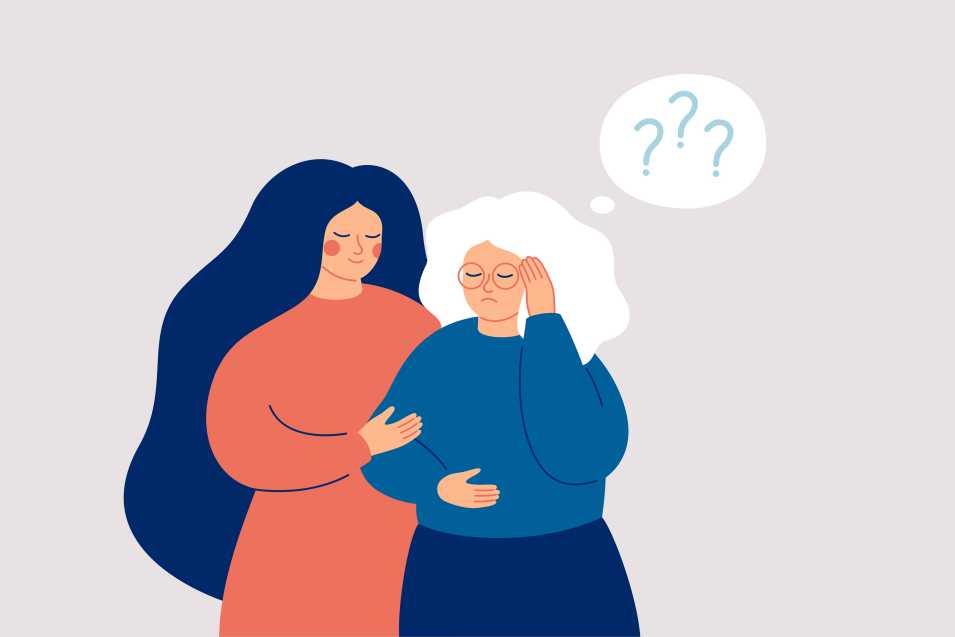Dementia is a severe illness that impacts millions of individuals globally. This disease develops slowly and causes the brain to deteriorate, resulting in a decline in cognitive ability and memory loss. Although dementia does not directly cause death, it can lead to various complications that may ultimately result in death. This article will explore how dementia can be fatal and how we can enhance end-of-life care for those with dementia.
What is Dementia?
Dementia is a broad term used to characterise a loss in mental capacity severe enough to affect daily living; it is not a single disease. It results from damage to brain cells influencing individuals’s capacity for normal thinking, behavior, and feeling.
Most often occurring symptoms are:
- Memory loss especially related to recent events or knowledge difficulty with language and communication;
- Problems with visual perception and spatial awareness
- Less capacity to pay attention or concentrate; difficulties with judgment and reasoning
- Modifications in personality and attitude
Comprising 60–80% of cases, Alzheimer’s disease is the most often occurring kind of dementia. Among other forms are frontotemporal dementia, Lewy body dementia, and vascular dementia. Although dementia is most common in older persons and age is the main risk factor, it is not a normal aspect of aging.
The disorder is progressive, which means that over time symptoms get worse. Still, the course of development differs greatly depending on the form of dementia one suffers from. Early diagnosis can enable persons to receive suitable therapy, support, and care planning.
How does dementia affect the brain?
Damage to brain cells caused by dementia results in a decline in cognitive function and memory loss. As the disease progresses, the brain becomes increasingly damaged, which can result in a number of complications. Dementia negatively affects the eyes, reducing the ability to see.
How Does Dementia Kill You?
Infections, hunger and dehydration, and cardiovascular problems kill most dementia patients. These complications can arise due to a number of factors, including a weakened immune system, difficulty swallowing, and an increased risk of falls and accidents.
How does dementia increase the risk of infections?
Dementia can weaken the immune system, making it harder for the body to fight infections. Dementia increases the risk of pneumonia and urinary tract infections, which can be deadly for seniors.
How does dementia lead to malnutrition and dehydration?
Dementia patients often forget when they ate or drank or have problems swallowing. Malnutrition and dehydration can cause infections, renal failure, and death.
Related Article: 7 Stages Of Lewy Body Dementia
How does dementia affect the heart and lungs?
Dementia can cause changes in the autonomic nervous system, affecting heart rate, blood pressure, and breathing. People with dementia may also experience difficulty breathing due to weakened muscles in the chest and throat.
How does dementia increase the risk of falls and accidents?
As dementia progresses, people may experience balance and coordination problems, making them more prone to falls and accidents. Dementia patients are more at risk for the broken bones and brain trauma that can result from a fall.

How does dementia affect the immune system?
Dementia can weaken the immune system, making it harder for the body to fight infections. Because of this, the probability of contracting life-threatening infections like pneumonia and sepsis is raised.
Related Article: What Causes Amnesia?
How does dementia impact the ability to swallow?
As dementia progresses, people may have difficulty swallowing, leading to malnutrition and dehydration. Food or liquid in the lungs can cause aspiration pneumonia, a dangerous illness.
How does dementia affect end-of-life care?
People with dementia often require specialized end-of-life care to help manage symptoms and ensure comfort. This can include palliative care, hospice care, and support for family members and caregivers.
Related Article: Hospice Criteria For Dementia
What stage of dementia is not bathing?
One of the symptoms of dementia at any stage is an inability to bathe. Still, it is typically most severe in the later stages of the disease, particularly in stage 5, also known as the late stage of dementia. As dementia progresses, individuals may forget to bathe, need help, or refuse to do so due to various causes like delusions, hallucinations, fear, or lack of interest. Caregivers should break down tasks into smaller parts, provide verbal and physical clues, and seek professional aid to comprehend and resolve the situation.
How can we improve end-of-life care for people with dementia?
Several things can be done to improve end-of-life care for people with dementia, including providing specialized training for caregivers, improving access to hospice and palliative care services, and increasing public awareness about the unique needs of people with dementia.
